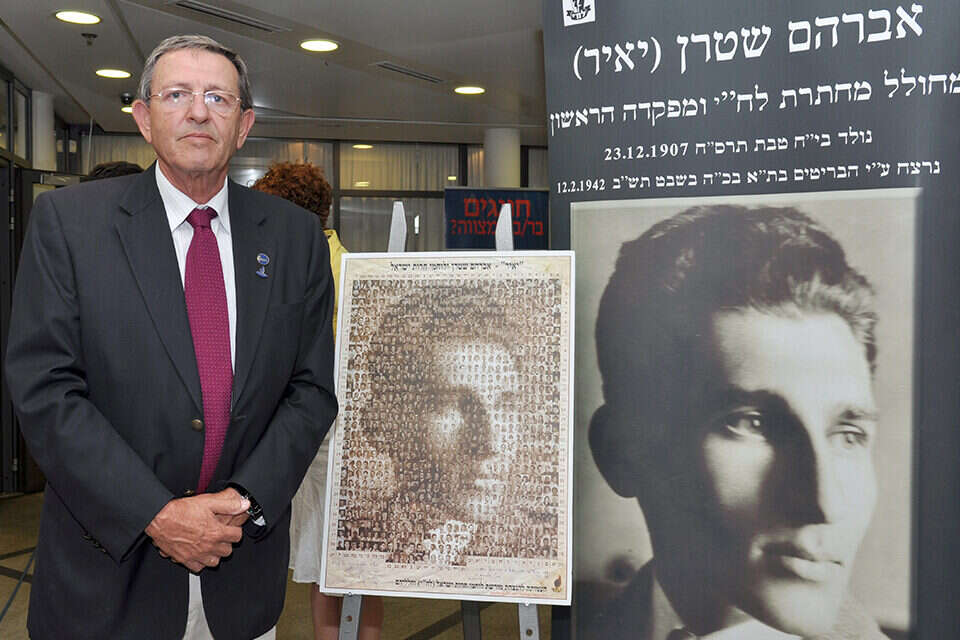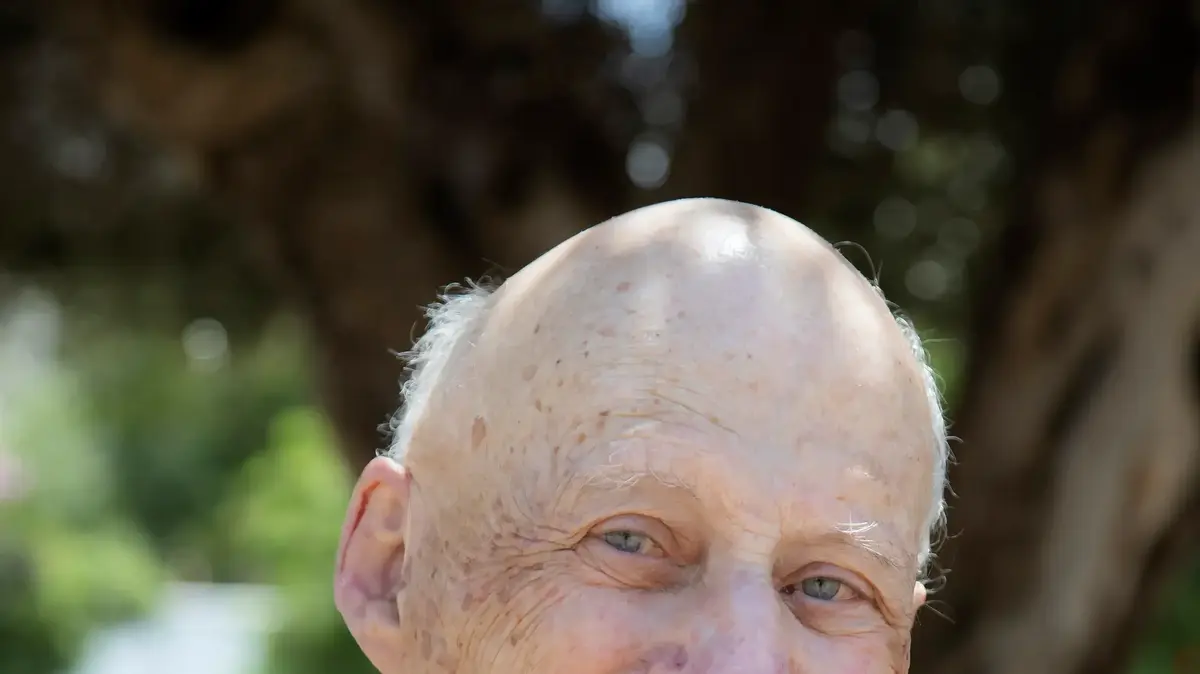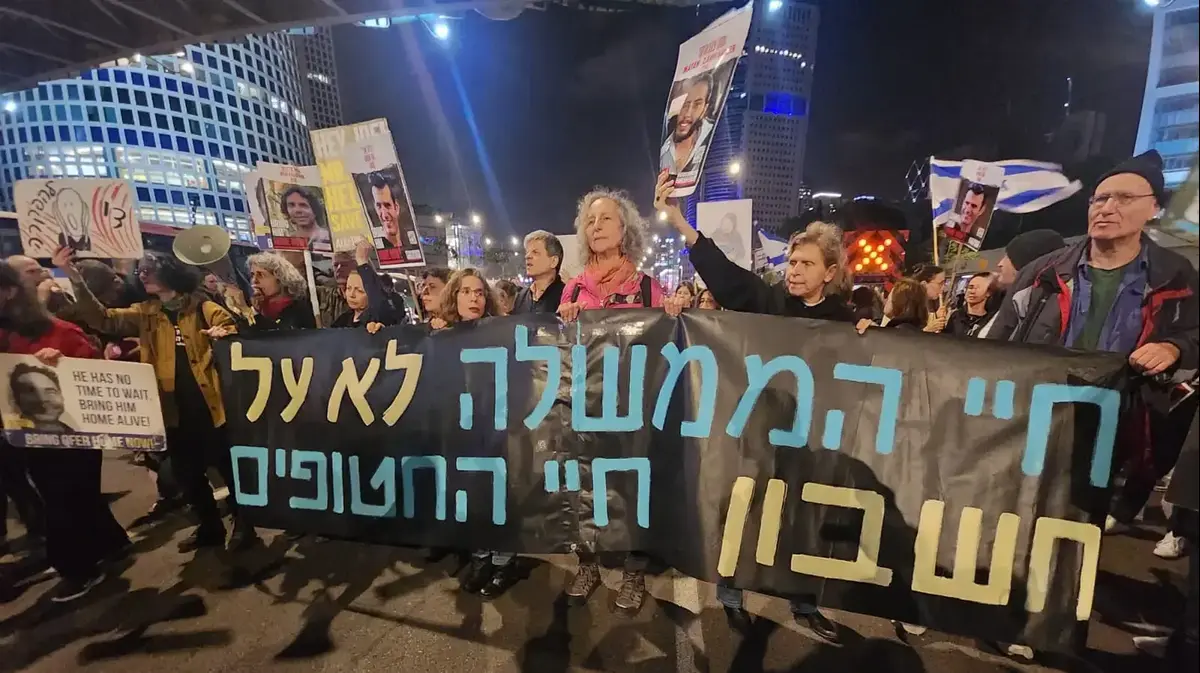The craft of writing, explained Stanley Fish, is the sole responsibility of the reader. His writing depends on interpretation, and especially on the spirit of the time when the book is published. Well, this is my "reading" of the fascinating book by Yair Stern, son of the founder of Lehi Avraham Yair Stern, which sees the light of day when the country is in turmoil.
In my opinion, this is a book that clarifies why the members of the "warring family" in their adulthood became believers in liberal ethics, which has no place today in the ruling movement, and probably not in the popular media either.
Why did most of the children of the fighters and martyrs of Etzal and Lehi, those who paid a huge price for years when they were not recognized for their parents' sacrifice in Israeli independence, become state-minded, the first to stand up against the excessive accumulation of governmental power, to object to media manipulation, to protest against the blackening of groups and to rebel Against bureaucratic abuse in disadvantaged communities, even if they are political rivals.
In the belief "Don't do to your friends what is hateful to you".
In my opinion, this is the super story that "stitches" the two parts of the book.
The first part of the book can be used as an independent essay and form the basis of the "Second Generation of Underground Fighters" bookshelf.
The reader is exposed to a life without empathy for sacrifice and loss.
Stern and his mother lived a life of poverty and unemployment from rape.
As far as the establishment was concerned, Roni Stern was a "terrorist's wife".
"When she arrived following a job ad to the Wizo club in Ramat Gan, the manager said that it was impossible to give this job to Stern's wife because she could corrupt the youth."
All her days she lived in doubt that those who looked at her might see the mark of Cain on her forehead: "They turn their backs on her, dismiss her, gossip about her and look at her as a leper. How come they don't know and don't understand what a great leader the nation lost?"
What did Stern Jr. take from this painful reality for his adult life?
Do we stick to the revisionist right-wing community?
Has he developed antagonism to the Israeli establishment?
Wrapped in a sacrificial bush?
the opposite.
He - and apparently his colleagues in this "trauma community" - became a unique "ethical community".
And Stern himself functions as the last of the disgruntled characters, the one who refuses to "sit in the dark".
He functions as an agent of globalization, enjoys demonstrating his love for the good life, for the love of man without limits (including bad relations with many prominent leftists), and especially as the one who became the trusted journalist for the American "doctrine of fairness".
Even when its implementation undermined the status of Likud governments.
An expression of all these is found in the second part of the book, which is an independent essay for Israeli media.
And whoever is looking for Stern's value DNA in it, will find it in the chapter "Thoughts on Journalism". Hidden in it is a paragraph in which one of the books that influenced him in his youth is mentioned, and it is a key to understanding the writer. In the early 1970s, Stern read a book by Gay Talese. The Kingdom and the Power". It is worth dwelling on the place of Tellis and the ethos he raised about Ness in this book, as well as on the reason why it is so central to the professional life of Stern the journalist. Tellis is Stern's character, who came to the "New York Times" after his military service and began his career there as a sports reporter, only then did he advance through the ranks until he became an investigative journalist.
The book traces the organizational-ethical practice of the "New York Times".
The one thanks to which the news, the revelations, and in fact the "truth", are the icing on the cake that is made anew every day.
The title of the book is his thesis.
The name "Kingdom" refers to the newspaper's newsroom, which Tallis calls the factory newsroom.
Every employee there understands that they come to work to produce "truth" and bring the reader news information.
Communication students in every faculty in the world repeatedly memorize the motif of the newspaper they study from this book: "All the News That's Fit to Print".
In the face of the difficulties, the politicization, the committees, the crowd, Yair Stern tried to introduce journalistic standards that made it clear that the journalistic truth would be the center even in the impossible place called the Broadcasting Authority: daily meetings of the news system in which he also participated as a television director, insisting on checking every news item several times before it was broadcast , and especially attention to balance.
The trend began when he was the head of the news department and under the rule of the Likud, a party that apparently some thought would give its leaders some grace in coverage.
It did not happen.
Stern testifies to how the news system functioned under him during Operation Shlag, with "absolute freedom of the press (while receiving) backing for all publications", including in the coverage of Sabra and Shatilah events. The channel competed with the broadcast norms of the foreign televisions and delivered to the Israeli audience accurate and incisive broadcasts about the IDF's performance in Lebanon, which led to the thousands of protests, which ultimately demanded an investigation of the events - and the sequel is known.
He had already formulated the coverage norms of the first intifada himself and strictly adhered to them.
It was he who insisted that the exclusive images of IDF soldiers carrying out Yitzhak Rabin's order to break legs and arms be broadcast - despite the local and international significance of this.
Stern's book is a book written by someone who was himself a victim of post-truth.
One whose entire political community experienced abuse due to the politicization of facts.
He who the establishment turned his father - a national hero - into an excluded terrorist.
And precisely because of this he himself became a warrior of facts.
It is no coincidence that many members of his community are now labeled by elements in the ruling party as those who "forgot where they came from".
It is interesting - precisely they, who have become agents of a state, liberal code of ethics, the guardians of the discourse of truth, those who object to the worship of a single leader and the strengthening of his power (Ben-Gurion in the past and others in the present), feel unable to belong to the same party for exactly the same reason.
This is because they remember where they came from and cannot take part in the actions that were used against their parents in the past.
Yair Stern's book indicates that the experience of sacrifice may lead to different legacies and different imperatives.
In this sense, this is a book about the sociology of truth and the legacy of the first post-truth victims in Israel.
"Yair ben Yair", Yair Stern, Yedioth Books, 190 p.
Prof. Udi Labell is a lecturer at the School of Communication and the BSA Center,
Bar-Ilan University
were we wrong
We will fix it!
If you found an error in the article, we would appreciate it if you shared it with us







